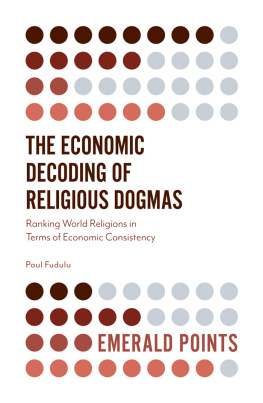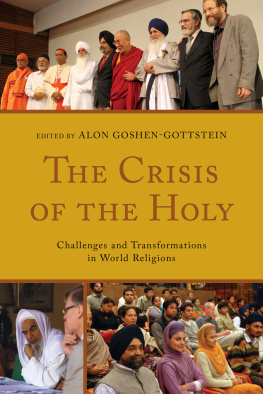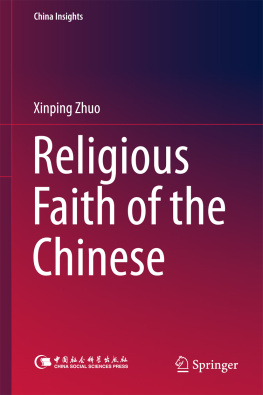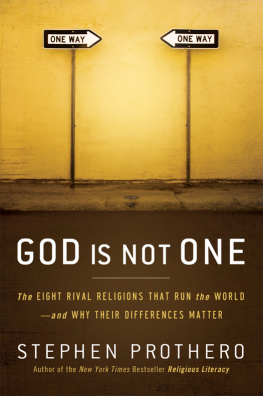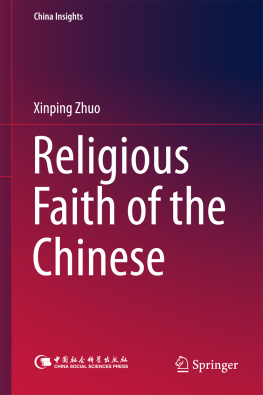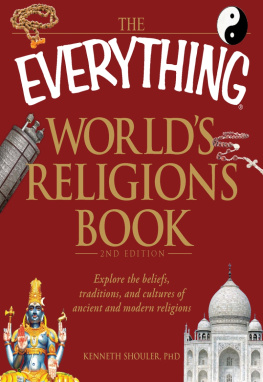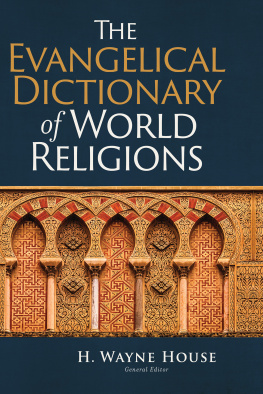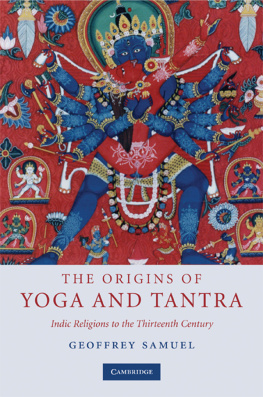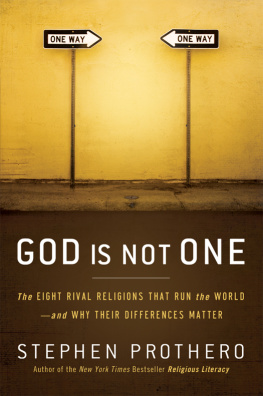THE ECONOMIC DECODING OF RELIGIOUS DOGMAS
Ranking World Religions in Terms of Economic Consistency
THE ECONOMIC DECODING OF RELIGIOUS DOGMAS
Ranking World Religions in Terms of Economic Consistency
BY
PAUL FUDULU
University of Bucharest, Bucharest, Romania

United Kingdom North America Japan
India Malaysia China
Emerald Publishing Limited
Howard House, Wagon Lane, Bingley BD16 1WA, UK
First edition 2017
Copyright 2017 Emerald Publishing Limited
Reprints and permissions service
Contact:
No part of this book may be reproduced, stored in a retrieval system, transmitted in any form or by any means electronic, mechanical, photocopying, recording or otherwise without either the prior written permission of the publisher or a licence permitting restricted copying issued in the UK by The Copyright Licensing Agency and in the USA by The Copyright Clearance Center. Any opinions expressed in the chapters are those of the authors. Whilst Emerald makes every effort to ensure the quality and accuracy of its content, Emerald makes no representation implied or otherwise, as to the chapters suitability and application and disclaims any warranties, express or implied, to their use.
British Library Cataloguing in Publication Data
A catalogue record for this book is available from the British Library
ISBN: 978-1-78714-536-8 (Print)
ISBN: 978-1-78714-535-1 (Online)
ISBN: 978-1-78714-966-3 (Epub)
CONTENTS
FOREWORD
The economic theory of religion is a relatively new scientific field. However, this research project was not born out of my desire to pursue a new and very interesting research direction. The fact that the research communicated through this book has been performed at the beginning of this new scientific endeavor is simply coincidence. The study of the influence of religious values and institutions on economic performance has been a natural stage in my long-term, nonorthodox, personal research program. Hence, it should be no surprise that the methodology and conclusions derived from this research are quite different from others.
The analytical model I propose in this book is based on my previous studies regarding the formation of preferences and cultural values as well as the nature of rules and institutions. All studies were performed within a fundamentally different paradigm. This book is the first major test of the general power paradigm a paradigm for which I have struggled to attain recognition. The results are beyond my expectations. Through using an analytical model quite different from that of standard economic theory, rational choice perspective and the Weberian model, I proved something that, from the perspective of orthodox social science inspired by Western culture, is hardly imaginable. Specifically, religious values, rules, and institutions intrinsically contain direct and indirect rankings of the mega-objective absolute wealth (or economic performance) and, as such, they predetermine the economic performance of communities that embrace those religions.
Because the level of economic performance determined by a religion is encoded in its dogma, nothing else but religious dogma should be studied or decoded by economists. Just the outside, plain aspects of religious activities like religiosity cannot but mislead. It is equally misleading to study the correlation between dominant religions and economic performance of the corresponding communities. This is so because the economic performance of many countries has increasingly depended on economic systems and institutions they have been forced or induced to adopt and which have nothing in common with their own cultures and, as such, their own religions.
The standard economic models for analyzing religion are not fit to tackle this problem. It seems it is impossible to economically decode religious dogmas and derive a solid economic consistency ranking of religions other than from the perspective taken in this book, and by its derivative concepts and correlations.
1
THE MODEL
1.1. THE GENERAL POWER PERSPECTIVE
1.1.1. Weberian Rationalism or the Rationalism of Absolute Wealth
If we accept that capitalism is an efficient institutional setting in terms of absolute wealth, Webers idea that its adoption by Western countries is due to a special Western rationalism allows us to embark on the same present course of Western economic (but not only economic) theory: The objective, or the end, of absolute wealth or economic performance is the only megaobjective of all cultures or is a transcultural megaobjective and, consequently, the only possible way to learn something about why some countries are rich and most others have stayed poor for centuries is to look into the means of generating absolute wealth. Let me pinpoint the falsehood and difficulties of such a course by making special reference to Webers rationalism.
In brief, the logic of Webers idea of Western rationalism as a partial determinant of modern capitalism is that a certain type of religion that is Protestantism, especially English Puritanism as derived from Calvinism is based on a type of rational behavior that favors formation of the capitalistic spirit and the type of economic system which has prevailed in Western countries in the modern age. This effect of Protestant rationalism on modern capitalistic culture or what today is called progress was unintended, derived from purely religious characteristics, and must be based on some biological or anthropological feature of Westerners (Weber, 1985, p. 30), because we find again and again that, even in departments of life apparently mutually independent, certain types of rationalization have developed in the Occident, and only there (Weber, 1985, p. 30).
With Weber, in order for economic rationalism be adopted successfully, individuals have to have the ability and disposition to adopt certain types of rational practical conduct which depend heavily on magical and religious forces because they have been, especially in the past, the most important formative influence on conduct (Weber, 1985, p. 26, 27). At the same time, according to Weber, the cultural determination of capitalism is weak enough that it might very well have been developed in China, India, or Islamic countries, in the modern era or also in antiquity.
The fundamental (rather implicit) assumption in Webers model is the validity of a generally and uniquely desired human megaobjective or megagood, which in this way becomes some kind of transcultural good: The megaobjective of absolute wealth. If this were not the case, talking about the failure of some countries to develop capitalism would make no sense. Because it is the case of a single megaobjective, adopting the efficient institutional setting capitalism is not a problem of choice, but a technical problem, or a problem of identifying and being able to adopt the proper means for a single human megaobjective. Thus, when some collectivity appears to have failed to adopt the proper efficient setting of capitalism, one runs into a problem which cannot be solved except by a discipline such as comparative racial neurology and psychology. It is a direction which some economists like North (2005) who seems to have followed Webers suggestion very closely have taken.

